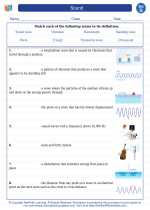Sedimentation
Sedimentation is the process by which solid particles settle out of a liquid or gas. This can occur naturally, through the action of gravity, or it can be induced through various processes such as centrifugation or filtration. Sedimentation is an important concept in geology, environmental science, and engineering, as it plays a crucial role in the formation of sedimentary rocks, the purification of water, and the separation of particles in industrial processes.
Key Concepts:
- Types of Sedimentation: There are two main types of sedimentation: settling and centrifugation. Settling occurs when particles sink to the bottom of a liquid due to gravity, while centrifugation involves the use of a centrifuge to separate particles based on their density.
- Factors Affecting Sedimentation: The rate of sedimentation is influenced by several factors, including the size and density of the particles, the viscosity of the fluid, and the force of gravity.
- Applications of Sedimentation: Sedimentation is used in various applications, such as the treatment of wastewater, the purification of drinking water, and the separation of components in industrial processes.
- Environmental Impact: Sedimentation can have environmental implications, as excessive sedimentation in water bodies can lead to the degradation of aquatic ecosystems and water quality.
Study Guide:
To gain a thorough understanding of sedimentation, it's important to review the following topics:
- Definition of sedimentation and its role in different fields of science and engineering.
- The factors that influence the rate of sedimentation and how they affect the process.
- Examples of natural sedimentation processes, such as the formation of sedimentary rocks, and human-induced sedimentation processes, such as water treatment and industrial separation techniques.
- The environmental implications of sedimentation and its impact on aquatic ecosystems.
Additionally, it's beneficial to explore practical examples and case studies related to sedimentation in order to gain a deeper understanding of its applications and significance in various contexts.
By studying these key concepts and topics, you will develop a comprehensive understanding of sedimentation and its relevance in the scientific and engineering realms.
[Sedimentation] Related Worksheets and Study Guides:
.◂Science Worksheets and Study Guides Seventh Grade. Sound
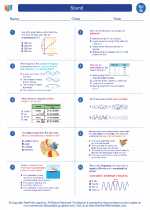
 Worksheet/Answer key
Worksheet/Answer key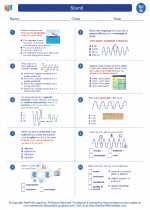
 Worksheet/Answer key
Worksheet/Answer key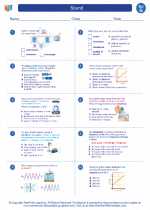
 Vocabulary/Answer key
Vocabulary/Answer key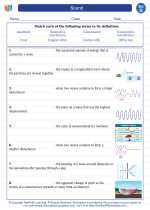
 Vocabulary/Answer key
Vocabulary/Answer key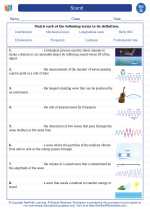
 Vocabulary/Answer key
Vocabulary/Answer key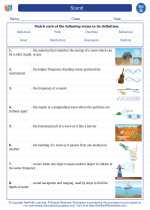
 Vocabulary/Answer key
Vocabulary/Answer key